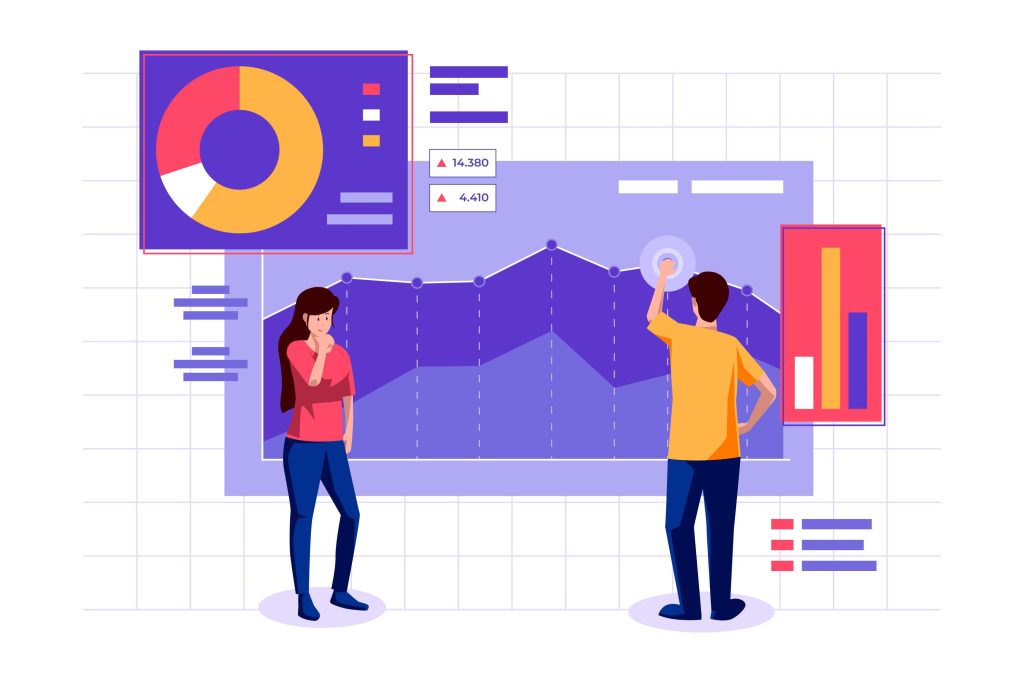The Future of Market Research: Unveiling the Top 10 Emerging Trends
Jul 21, 2023
Introduction
In today’s rapidly evolving business landscape, market research plays a pivotal role in guiding companies toward success. As consumer preferences and behaviours shift at an unprecedented pace, staying ahead of the curve has never been more critical.
As we step into a new era, businesses must adapt to changing consumer behaviors and technological advancements. Let’s delve into the top ten emerging market research trends that are reshaping the landscape of consumer insights. Embracing these trends will equip businesses with the tools to understand their audiences better, make data-driven decisions, and stay ahead of the competition.
The top 10 emerging trends
1. Artificial Intelligence and Machine Learning: Unleashing the Power of Data
Artificial Intelligence (AI) and Machine Learning (ML) have emerged as game-changers in the field of market research. By leveraging these technologies, businesses can process vast amounts of data quickly and accurately, uncover hidden patterns, and predict consumer behaviour with greater precision. AI-driven market research tools enable companies to gather valuable insights from social media interactions, customer reviews, and online behaviour, empowering them to make informed decisions in real-time.

2. Mobile Research: Tapping into Consumer Insights on the Go
As smartphones become an integral part of daily life, mobile research has witnessed a significant surge. Consumers are more connected than ever, and leveraging mobile devices allows researchers to capture real-time data, leading to more authentic and spontaneous responses. Mobile surveys, in-app data collection, and location-based research offer unparalleled opportunities to understand consumer sentiments and preferences in their natural settings.

3. Ethnographic and Behavioral Research: Understanding Consumers in their Element
Traditional survey methods are making way for more immersive approaches like ethnographic and behavioural research. Ethnographic research involves observing consumers in their natural environments, providing deeper insights into their lifestyles, habits, and motivations. Behavioural research, on the other hand, analyzes actual consumer interactions, such as online shopping behaviour and social media usage, to gain a contextual understanding of their preferences.

4. Virtual and Augmented Reality: Elevating Consumer Engagement
Virtual Reality (VR) and Augmented Reality (AR) are revolutionizing how businesses engage with consumers. Market researchers are utilizing VR/AR to conduct simulated product testing, virtual focus groups, and immersive shopping experiences. These technologies not only boost consumer engagement but also offer valuable data on consumer reactions and preferences in a controlled yet realistic environment.

5. Voice and Conversational Research: Understanding the Voice of the Consumer
The rise of voice-enabled devices has given birth to voice and conversational research. Businesses are tapping into voice assistants like Amazon Alexa and Google Assistant to gather consumer insights through voice surveys and natural language interactions. Voice research provides a more convenient and accessible means of data collection, allowing researchers to capture authentic responses without the barriers of typing or clicking.

6. Big Data Analytics and Predictive Insights: Anticipating the Future
Big Data analytics has become a cornerstone of modern market research. Combining data from multiple sources, including social media, website traffic, and customer feedback, enables researchers to derive comprehensive insights. Additionally, predictive analytics utilizes historical data to anticipate future trends and consumer behavior, empowering businesses to proactively adapt their strategies.

7. Sentiment Analysis: Understanding Consumer Emotions
Sentiment analysis allows businesses to gauge consumer emotions and opinions from online interactions. Analyzing sentiment in social media posts, reviews, and comments helps in understanding customer satisfaction and pain points, leading to improved products and services.

8. Neuro Marketing: Tapping into the Subconscious
Neuromarketing techniques, such as EEG and eye-tracking, enable researchers to access consumers’ subconscious reactions to stimuli. This trend provides valuable insights into consumer preferences and decision-making processes, enabling businesses to create more impactful marketing campaigns.

9. Ethical and Inclusive Research: Respecting Consumer Privacy and Diversity
Ethical and inclusive market research is gaining prominence. Respecting consumer privacy and ensuring data security are paramount in today’s digital age. Additionally, embracing diversity in research panels leads to more representative insights, catering to the needs of a broader consumer base.

10. Blockchain for Data Integrity: Enhancing Trust
Blockchain technology is being adopted to ensure data integrity and enhance trust in market research. The decentralized nature of blockchain allows for secure and tamper-proof storage of data, protecting sensitive information and building credibility in research findings.

Conclusion
The landscape of market research is undergoing a transformative shift, driven by the convergence of technology, consumer behavior, and data-driven insights. Embracing these six emerging trends empowers businesses to connect with their target audiences on a deeper level, adapt to changing market dynamics, and make informed decisions that drive success. As the market continues to evolve, staying at the forefront of these trends will be the key to unlocking new opportunities and maintaining a competitive edge in the ever-changing business world.
